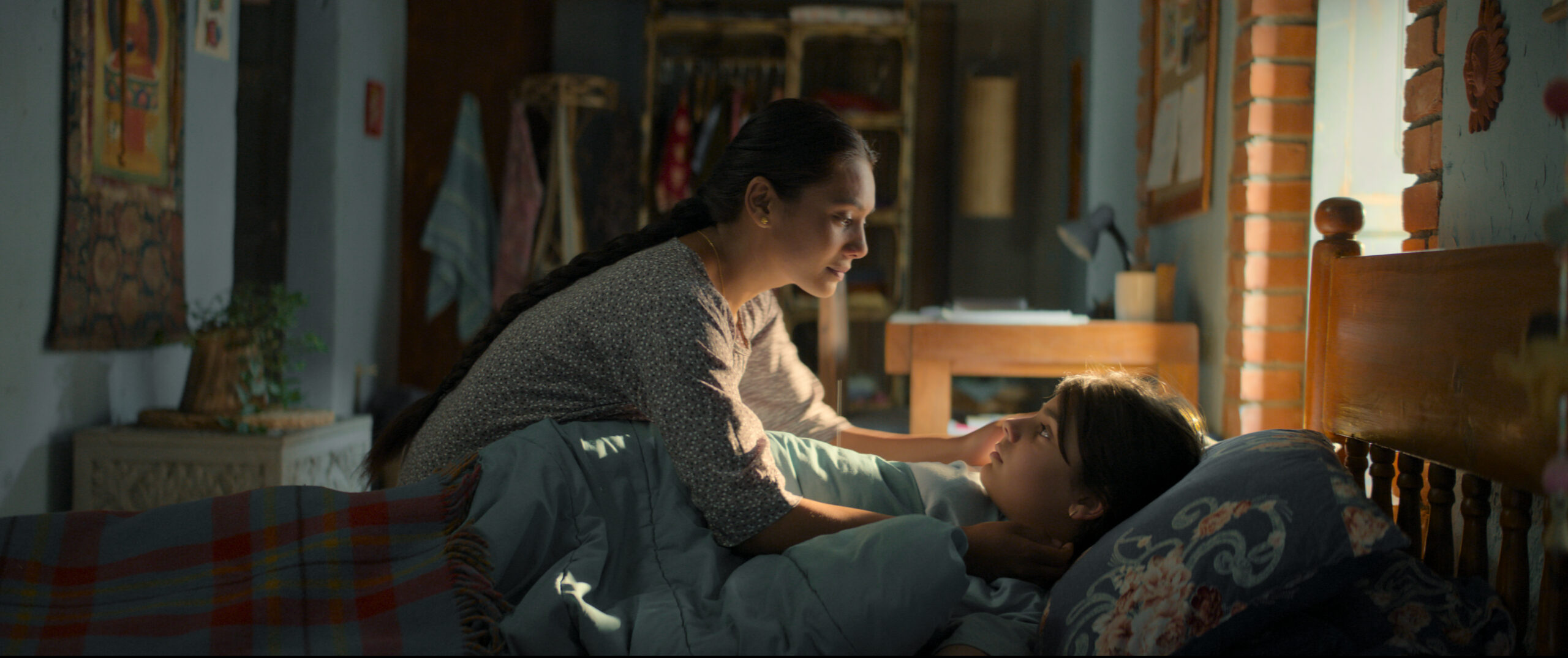

Award Winning Director Explores Trauma and Healing in Latest Film
Filmmaker Nani Sahra Walker has built a career defined by curiosity, courage, and compassion. A director, writer, and producer, her work moves fluidly between documentary, narrative, and immersive media—all with a deep commitment to truth and humanity. Through her films, Walker explores how people navigate identity, justice, and belonging in an increasingly complex world.
Supported through the Vilcek Foundation, Shakti will premiere at the 45th Hawai’i International Film Festival (HIFF) as part of the New American Perspectives program, which spotlights immigrant filmmakers.
Early Life and Global Perspective
Born in Kathmandu, Walker spent her childhood between Nepal, California, and Japan. Early in her adolescence, she moved to California, which would mark the first of many global moves for Walker, shaping her perspective as an observer and storyteller.
Walker graduated from Hokkaido International School in Japan and returned to the United States to study religion and philosophy at Boston University. After college, Walker moved to New York, where she honed her skills in different aspects of filmmaking. Working with FlickerLab, she contributed to a range of commercial and documentary projects, including Michael Moore’s Fahrenheit 9/11.

Advancing Truth and Shakti
In her narrative feature debut, Shakti, Walker showcases her expertise as a humanistic storyteller. The film follows a free-spirited girl named Lila, and her mother and aunt as they navigate societal expectations and gender roles in Kathmandu. When Lila falls sick with a mysterious illness, the three women are forced to confront not only their own wounds but also the broader injustices that Dalit women face in Nepal.
Walker was compelled to write and direct the film to highlight laws in Nepal that impose a 35-day statute of limitations on reporting sexual assault, and the work of contemporary activists to support survivors. Shakti confronts fading global attention on sexual violence, caste injustice, and the corruption fueling Nepal’s biggest protests in decades,” says Walker. “It’s both a response to Nepal’s urgent call for action and a universal story of justice and resilience.”
The film was developed in part with a $30,000 grant from the Gerbode Foundation through its Advancing Truth program. Advancing Truth grants are awarded in support of projects that use media and technology to inform and engage the public on critical issues, and to support artists who advocate for and inspire change.
On the rise: Dancing Star Films
The 2007 financial crisis—and Walker’s growing desire to tell original stories—initially propelled her to forge her own path in filmmaking. She left New York for California, where Walker founded Dancing Star Films, an independent production company that became her creative home for nearly a decade. She served as a consultant and casting director for Icíar Bollaín’s critically acclaimed feature, Kathmandu Lullaby, and her production design for Fall Out Boy’s Uma Thurman music video went on to earn an MTV Music Video Award, reflecting her versatility as a creative leader.
It was during this era that Walker began developing her own short films, Caltrain Express and Coming in from The Cold, as well as her debut feature documentary, Other Nature (2012). In Other Nature, Walker chronicles Nepal’s landmark legislation guaranteeing rights to third-gender individuals—the world’s first law to do so. Walker’s thoughtful approach balances an exploration of the long history of gender diversity in South Asia with the experiences of modern activists in Nepal.
In pursuit of a deeper understanding of emerging storytelling tools and forms, Walker earned her master’s degree in journalism from the University of California, Berkeley (UC Berkeley), specializing in new media and documentary. There, Walker co-directed Forced, while exploring augmented reality and virtual reality applications.
Since 2016, Walker has taught multimedia and documentary storytelling at UC Berkeley, mentoring the next generation of journalists and filmmakers. Her work has evolved over the last decade. Walker has led projects for National Geographic, The Atlantic, Los Angeles Times, McClatchy, and The Washington Post. From 2021 to 2024, she served as executive producer of the Los Angeles Times Short Docs program, where The Last Repair Shop—executive produced by the Times—won an Academy Award and established her as a leading voice in nonfiction film.
Through every phase of her career, Walker has remained anchored by a belief in storytelling as a conscious and creative act—one capable of bridging worlds and amplifying voices that need to be heard.
Vilcek Foundation
Vilcek Foundation
Share


